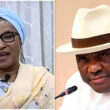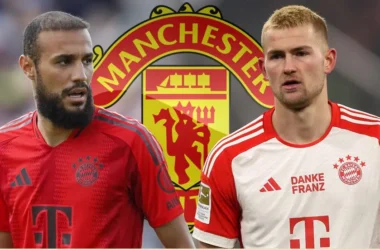Over the past few decades, African football has undergone a remarkable transformation. Once seen as underdogs on the global stage, African players now command respect, admiration, and hefty contracts from some of the world’s biggest football clubs. From the dusty pitches of Lagos to the grand stadiums of London, Madrid, and Paris, the rise of African football stars has reshaped the sport’s global landscape, influencing both playing styles and commercial dynamics.
Historical Roots and Early Breakthroughs
Africa’s journey in football began under colonial influence, but the sport soon became a vehicle for national pride and identity. The first major signs of Africa’s talent emerged in the 1980s and 90s, when players like Roger Milla (Cameroon), George Weah (Liberia – and later a Ballon d’Or winner), and Nwankwo Kanu (Nigeria) began making headlines in European leagues. These pioneers laid the groundwork for future generations, proving that African players could thrive at the highest levels of the game.
The 21st Century: A Golden Era
The 2000s ushered in a golden era of African football talent. Samuel Eto’o (Cameroon), Didier Drogba (Côte d’Ivoire), and Yaya Touré (Côte d’Ivoire) became household names across Europe. They not only won major trophies, including the UEFA Champions League and English Premier League titles, but also inspired millions across Africa.
In recent years, this legacy has continued and even accelerated. Players like:
• Mohamed Salah (Egypt) – A Liverpool icon and multiple-time Premier League Golden Boot winner.
• Sadio Mané (Senegal) – Champions League winner and African Footballer of the Year.
• Victor Osimhen (Nigeria) – Serie A champion with Napoli and one of the top scorers in Europe.
• Achraf Hakimi (Morocco) – A key figure at PSG and a crucial player for his national team.
• André Onana (Cameroon) – A top goalkeeper now making waves in the English Premier League.
These athletes are no longer just talented exports; they are now central figures shaping tactics, marketing strategies, and fan cultures in global football.
Impact on Global Football
The influence of African stars is evident in several key areas:
• Playing Style: African players have brought flair, speed, physicality, and resilience to European football, often becoming the heartbeat of their teams.
• Market Value: African stars now command transfer fees and salaries that reflect their importance, breaking stereotypes that once undervalued players from the continent.
• Cultural Influence: African footballers use their platforms to celebrate their heritage, often wearing national flags or engaging in philanthropic work back home. Their influence extends beyond the pitch, into fashion, music, and social media.
Boosting Local Development
The rise of African stars has had a reciprocal effect on football in Africa itself. Investment in youth academies, such as the Right to Dream Academy in Ghana or the MTA in Nigeria, has grown. European clubs are also increasingly scouting for young African talent, while African leagues and competitions are gaining more visibility through digital platforms and international partnerships.
Moreover, successful players often invest in their communities, funding schools, clinics, and sports facilities, effectively using football as a tool for socio-economic development.
Challenges and the Road Ahead
Despite the progress, challenges remain. Issues like corruption in football administration, poor infrastructure, and inadequate youth development systems continue to hinder the full realization of Africa’s football potential. Dual-nationality debates also see many talented players choosing to represent European nations over their countries of birth due to better facilities and career prospects.
However, the future remains bright. With increasing global recognition, better governance, and the expansion of FIFA World Cup slots, African nations and their stars are poised to play even more prominent roles in international football.
Conclusion
The rise of African football stars is not just a sports story — it’s a narrative of resilience, talent, and global integration. These players represent the hopes of millions and the possibilities that arise when opportunity meets potential. As they continue to shine on the world stage, they carry the pride of a continent that is finally receiving the football recognition it has long deserved.
By Ibrahim Bature Sallama
Empowered Newswire – Sports Editor










